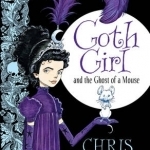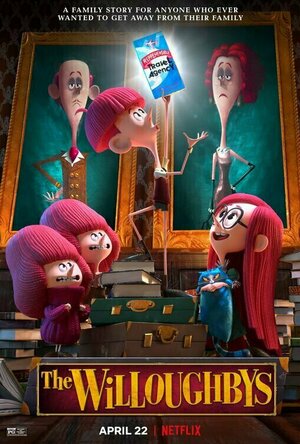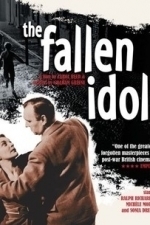Search
Search results

Deer Hunter Classic
Games and Sports
App
Return to the wilderness in the most visually stunning hunting simulator on mobile! Travel from...
Sam (228 KP) rated The Willoughbys (2020) in Movies
May 13, 2020
Character development (or not) (3 more)
Good messages
Cute music
Adorable storyline
Absolutely Adorable
This film takes hard and upsetting topics, addressing them in a light-er tones that can be understood by children. This film is a heartwarming tale about the trust meaning of family and what it really means to choose your family. At the end (no spoilers!) there is a single moment where I began to worry that it would be one of THOSE movies and trust me you'll know it when you see it. I'll give you a hint and say it involves es both the parents and kids but that's all I'm saying!
The reason I enjoyed this film so much definitely has to do with how they chose to address the topics of social services and what it means to put a child into the system. They also do this in such a way that a child can understand and clearly see that there's something not right with how they go about things. However, despite this, they do not make 'orphan services' as it's called in the film, the bad guy. Rather they add a slightly different tone, hinting that they care and that their coldness is a result of trying to be apart of the working system. They're not the 'problem' in the film but simply another aspect within the film pushing the real problem. The system is broken, a system set up to help and keep children safe (they even mention it in film), is instead breaking up families for no other reason than minimal circumstance and (not sure if people caught this one) NO EVIDENCE.
I fear I'm starting to hint around spoilers so I'll say no more but the film is worth a look. Even if you don't necessarily like kid films the ideas in this film on family and 'the system' is truly something to marvel.
The reason I enjoyed this film so much definitely has to do with how they chose to address the topics of social services and what it means to put a child into the system. They also do this in such a way that a child can understand and clearly see that there's something not right with how they go about things. However, despite this, they do not make 'orphan services' as it's called in the film, the bad guy. Rather they add a slightly different tone, hinting that they care and that their coldness is a result of trying to be apart of the working system. They're not the 'problem' in the film but simply another aspect within the film pushing the real problem. The system is broken, a system set up to help and keep children safe (they even mention it in film), is instead breaking up families for no other reason than minimal circumstance and (not sure if people caught this one) NO EVIDENCE.
I fear I'm starting to hint around spoilers so I'll say no more but the film is worth a look. Even if you don't necessarily like kid films the ideas in this film on family and 'the system' is truly something to marvel.
Hazel (1853 KP) rated Touching the Rock: An Experience of Blindness (Notes on Blindness Film Tie-in) in Books
May 23, 2017
Eye-opener (if you pardon the pun)
I received this book for free through Goodreads First Reads.
It is not often a blind man writes a book, and “write” is a word used due to the lack of a better. John M. Hull gradually lost his sight, registering as blind in 1980, a couple of days before the birth of his son. Although anticipating the event, John struggled to come to terms with his new circumstances and adjust to a new way of living. From 1983 through to 1985, John recorded his thoughts on tape, in diary form, as a way to ascertain and understand his predicament. Originally titled Touching the Rock (1990), John’s book has been republished as Notes on Blindness after the release of the film of the same name.
Initially, John made recordings every day, dictating the everyday occurrences he encountered. Amazingly, despite his disability, John was able to continue as a university lecturer and delve deeper into the world of theology. The way John thinks things through as he speaks reflects his academic abilities. Although he may have despaired at the thoughts of not being able to see his children, he had a fairly positive outlook on life.
John’s thought capacity and religious ideology are evident in his assemblage of diary entries. As a blind person, he learns to see the world in an alternative way, and often feels closer to God as a result. Through these new experiences, John begins to see the light despite the darkness.
The metaphorical descriptions of blindness help the reader to understand the horror and difficulties not being able to see visually provokes. This is heightened by John’s recordings of the bad dreams he often suffers, in which he is able to see. His fixations on these dreams are assumedly a fascination with visual imagery, which he does not have access to in his waking life.
It is hard not feel sorry for John as he reports the conversations he has with his young children. The effort to communicate and play with them is far greater than a seeing parent. Remarkably, as John begins to adjust to his new lifestyle, his children take the situation in their stride.
Notes on Blindness is also an educational narrative for those without sight problems. John explains the things other people, in attempts to be helpful, do that result in making things far more confusing for John as he tries to navigate his way from one place to another. Despite what most think, blind people are fairly good at walking routes they are familiar with, and, with the help of a stick, can safely travel through new areas. Once people start shouting instructions, it is difficult to pay attention to the location and listen to everyone else at the same time.
John’s voice is extremely articulate, and his thoughts profound, which may suggest heavy editing when compiling the recordings into written form. However, as he is an academician, his eloquence of speech does not feel forced or faked.
Notes on Blindness remains the same as the original publication but with the added inclusion of an introduction by Cathy Rentzenbrink, and an epilogue by his wife Marilyn, written in 2016, a year after his death. These, the latter in particular, provide an insight into how John’s blindness affected those around him and emphasises what a truly remarkable man he was.
Of the many memoirs available on bookshelves today, Notes on Blindness is a truly unique publication. It is not telling a story, or recounting a well-lived life, but gives great insight into the world of the blind. As John’s thoughts were not originally recorded with intention of being available to everyone, they are all the more personal and honest, provoking emotion and providing the reader with a new way of seeing. It is a book that will stay with you for a very long time.
It is not often a blind man writes a book, and “write” is a word used due to the lack of a better. John M. Hull gradually lost his sight, registering as blind in 1980, a couple of days before the birth of his son. Although anticipating the event, John struggled to come to terms with his new circumstances and adjust to a new way of living. From 1983 through to 1985, John recorded his thoughts on tape, in diary form, as a way to ascertain and understand his predicament. Originally titled Touching the Rock (1990), John’s book has been republished as Notes on Blindness after the release of the film of the same name.
Initially, John made recordings every day, dictating the everyday occurrences he encountered. Amazingly, despite his disability, John was able to continue as a university lecturer and delve deeper into the world of theology. The way John thinks things through as he speaks reflects his academic abilities. Although he may have despaired at the thoughts of not being able to see his children, he had a fairly positive outlook on life.
John’s thought capacity and religious ideology are evident in his assemblage of diary entries. As a blind person, he learns to see the world in an alternative way, and often feels closer to God as a result. Through these new experiences, John begins to see the light despite the darkness.
The metaphorical descriptions of blindness help the reader to understand the horror and difficulties not being able to see visually provokes. This is heightened by John’s recordings of the bad dreams he often suffers, in which he is able to see. His fixations on these dreams are assumedly a fascination with visual imagery, which he does not have access to in his waking life.
It is hard not feel sorry for John as he reports the conversations he has with his young children. The effort to communicate and play with them is far greater than a seeing parent. Remarkably, as John begins to adjust to his new lifestyle, his children take the situation in their stride.
Notes on Blindness is also an educational narrative for those without sight problems. John explains the things other people, in attempts to be helpful, do that result in making things far more confusing for John as he tries to navigate his way from one place to another. Despite what most think, blind people are fairly good at walking routes they are familiar with, and, with the help of a stick, can safely travel through new areas. Once people start shouting instructions, it is difficult to pay attention to the location and listen to everyone else at the same time.
John’s voice is extremely articulate, and his thoughts profound, which may suggest heavy editing when compiling the recordings into written form. However, as he is an academician, his eloquence of speech does not feel forced or faked.
Notes on Blindness remains the same as the original publication but with the added inclusion of an introduction by Cathy Rentzenbrink, and an epilogue by his wife Marilyn, written in 2016, a year after his death. These, the latter in particular, provide an insight into how John’s blindness affected those around him and emphasises what a truly remarkable man he was.
Of the many memoirs available on bookshelves today, Notes on Blindness is a truly unique publication. It is not telling a story, or recounting a well-lived life, but gives great insight into the world of the blind. As John’s thoughts were not originally recorded with intention of being available to everyone, they are all the more personal and honest, provoking emotion and providing the reader with a new way of seeing. It is a book that will stay with you for a very long time.
Hazel (1853 KP) rated Notes on Blindness: A Journey Through The Dark in Books
Dec 17, 2018
<I>I received this book for free through Goodreads First Reads.</I>
It is not often a blind man writes a book, and “write” is a word used due to the lack of a better. John M. Hull gradually lost his sight, registering as blind in 1980, a couple of days before the birth of his son. Although anticipating the event, John struggled to come to terms with his new circumstances and adjust to a new way of living. From 1983 through to 1985, John recorded his thoughts on tape, in diary form, as a way to ascertain and understand his predicament. Originally titled <I>Touching the Rock</I> (1990), John’s book has been republished as <I>Notes on Blindness</i> after the release of the film of the same name.
Initially, John made recordings every day, dictating the everyday occurrences he encountered. Amazingly, despite his disability, John was able to continue as a university lecturer and delve deeper into the world of theology. The way John thinks things through as he speaks reflects his academic abilities. Although he may have despaired at the thoughts of not being able to see his children, he had a fairly positive outlook on life.
John’s thought capacity and religious ideology are evident in his assemblage of diary entries. As a blind person, he learns to see the world in an alternative way, and often feels closer to God as a result. Through these new experiences, John begins to see the light despite the darkness.
The metaphorical descriptions of blindness help the reader to understand the horror and difficulties not being able to see visually provokes. This is heightened by John’s recordings of the bad dreams he often suffers, in which he is able to see. His fixations on these dreams are assumedly a fascination with visual imagery, which he does not have access to in his waking life.
It is hard not feel sorry for John as he reports the conversations he has with his young children. The effort to communicate and play with them is far greater than a seeing parent. Remarkably, as John begins to adjust to his new lifestyle, his children take the situation in their stride.
<i>Notes on Blindness</i> is also an educational narrative for those without sight problems. John explains the things other people, in attempts to be helpful, do that result in making things far more confusing for John as he tries to navigate his way from one place to another. Despite what most think, blind people are fairly good at walking routes they are familiar with, and, with the help of a stick, can safely travel through new areas. Once people start shouting instructions, it is difficult to pay attention to the location and listen to everyone else at the same time.
John’s voice is extremely articulate, and his thoughts profound, which may suggest heavy editing when compiling the recordings into written form. However, as he is an academician, his eloquence of speech does not feel forced or faked.
<i>Notes on Blindness</i> remains the same as the original publication but with the added inclusion of an introduction by Cathy Rentzenbrink, and an epilogue by his wife Marilyn, written in 2016, a year after his death. These, the latter in particular, provide an insight into how John’s blindness affected those around him and emphasises what a truly remarkable man he was.
Of the many memoirs available on bookshelves today,<i> Notes on Blindness</i> is a truly unique publication. It is not telling a story, or recounting a well-lived life, but gives great insight into the world of the blind. As John’s thoughts were not originally recorded with intention of being available to everyone, they are all the more personal and honest, provoking emotion and providing the reader with a new way of seeing. It is a book that will stay with you for a very long time.
It is not often a blind man writes a book, and “write” is a word used due to the lack of a better. John M. Hull gradually lost his sight, registering as blind in 1980, a couple of days before the birth of his son. Although anticipating the event, John struggled to come to terms with his new circumstances and adjust to a new way of living. From 1983 through to 1985, John recorded his thoughts on tape, in diary form, as a way to ascertain and understand his predicament. Originally titled <I>Touching the Rock</I> (1990), John’s book has been republished as <I>Notes on Blindness</i> after the release of the film of the same name.
Initially, John made recordings every day, dictating the everyday occurrences he encountered. Amazingly, despite his disability, John was able to continue as a university lecturer and delve deeper into the world of theology. The way John thinks things through as he speaks reflects his academic abilities. Although he may have despaired at the thoughts of not being able to see his children, he had a fairly positive outlook on life.
John’s thought capacity and religious ideology are evident in his assemblage of diary entries. As a blind person, he learns to see the world in an alternative way, and often feels closer to God as a result. Through these new experiences, John begins to see the light despite the darkness.
The metaphorical descriptions of blindness help the reader to understand the horror and difficulties not being able to see visually provokes. This is heightened by John’s recordings of the bad dreams he often suffers, in which he is able to see. His fixations on these dreams are assumedly a fascination with visual imagery, which he does not have access to in his waking life.
It is hard not feel sorry for John as he reports the conversations he has with his young children. The effort to communicate and play with them is far greater than a seeing parent. Remarkably, as John begins to adjust to his new lifestyle, his children take the situation in their stride.
<i>Notes on Blindness</i> is also an educational narrative for those without sight problems. John explains the things other people, in attempts to be helpful, do that result in making things far more confusing for John as he tries to navigate his way from one place to another. Despite what most think, blind people are fairly good at walking routes they are familiar with, and, with the help of a stick, can safely travel through new areas. Once people start shouting instructions, it is difficult to pay attention to the location and listen to everyone else at the same time.
John’s voice is extremely articulate, and his thoughts profound, which may suggest heavy editing when compiling the recordings into written form. However, as he is an academician, his eloquence of speech does not feel forced or faked.
<i>Notes on Blindness</i> remains the same as the original publication but with the added inclusion of an introduction by Cathy Rentzenbrink, and an epilogue by his wife Marilyn, written in 2016, a year after his death. These, the latter in particular, provide an insight into how John’s blindness affected those around him and emphasises what a truly remarkable man he was.
Of the many memoirs available on bookshelves today,<i> Notes on Blindness</i> is a truly unique publication. It is not telling a story, or recounting a well-lived life, but gives great insight into the world of the blind. As John’s thoughts were not originally recorded with intention of being available to everyone, they are all the more personal and honest, provoking emotion and providing the reader with a new way of seeing. It is a book that will stay with you for a very long time.
Lindsay (1786 KP) rated An Amish Second Christmas in Books
Aug 30, 2018 (Updated Apr 9, 2019)
In When Christmas Comes Again, Kathleen and her four children are having their first Christmas without a love one. Kathleen starts to see an English man around the town. She receives a package at the door. There some photos in the box. There more to this story and quite a few twist and turns. There seems to be a mystery about this man. The man seem to know what or how some of the feeling of the family. Do they need help or will Kathleen mislead the what going on with her children?
In Her Christmas Pen Pal, Joy has to deal with her boyfriend who want to see other women. She starts to write a letter to her cousin. Though it happens it sent to the wrong person. The mystery man writes back to Joy. The Cabinet maker and Joy send letter back and forth with each other. There are twist and turns in this story and has a good mystery in the story as well. Do Noah and Joy get together? This grandmother starts talking to Joy about her grandson. Will Joy find out that the woman was talking about?
In A Gift for Anne Marie, Anne Marie wondering about the changes that are coming. She finds out about her mothers letters. When she does she finds out that her mother is getting re-married and they are moving. Anne Marie does not like it at all. She start to feel the changes between her and Nathaniel. Nathaniel does not like the fact that Annie Marie may be moving. Is there anything either can do about it?
In The Christmas Aprons, Easter Glick is a nanny for her cousin until her cousin can deal with her baby. While here Easter receives her mother recipe that every popular. She learns what she want to to be accepted for herself and not though the pies she bakes. Will she learn about Love?
In Her Christmas Pen Pal, Joy has to deal with her boyfriend who want to see other women. She starts to write a letter to her cousin. Though it happens it sent to the wrong person. The mystery man writes back to Joy. The Cabinet maker and Joy send letter back and forth with each other. There are twist and turns in this story and has a good mystery in the story as well. Do Noah and Joy get together? This grandmother starts talking to Joy about her grandson. Will Joy find out that the woman was talking about?
In A Gift for Anne Marie, Anne Marie wondering about the changes that are coming. She finds out about her mothers letters. When she does she finds out that her mother is getting re-married and they are moving. Anne Marie does not like it at all. She start to feel the changes between her and Nathaniel. Nathaniel does not like the fact that Annie Marie may be moving. Is there anything either can do about it?
In The Christmas Aprons, Easter Glick is a nanny for her cousin until her cousin can deal with her baby. While here Easter receives her mother recipe that every popular. She learns what she want to to be accepted for herself and not though the pies she bakes. Will she learn about Love?

Montessori Early Reading - Phonics & Rhyme games
Education and Games
App
Montessori Early Reading is made for early readers who are eager to practice reading easy phonetic...

Winnie-the-Pooh Deluxe Complete Collection
Book
'Once upon a time, a very long time ago now, about last Friday, Winnie-the-Pooh lived in a forest...
Michael Korda recommended The Fallen Idol (1949) in Movies (curated)
Deborah (162 KP) rated Richard III: The Road to Leicester in Books
Dec 21, 2018
Call, me cynical, but this does feel like a bit of an attempt to cash in on all the interest stirred by the discovery of King Richard's last resting place. It's a pretty short book - around 90 pages of main text with colour plates and gives a brief overview. The problem is that there are lots of errors - the names of Elizabeth Wydevilles eldest children for starters and the rather sensationalist statement that Edward V disappeared into his room in the Tower "never to come out again" - well, he's evidently not still there, so he must have come out one way or another!
If you want something sensible and readable, John Ashdown-Hill is the author to go with IMO.
If you want something sensible and readable, John Ashdown-Hill is the author to go with IMO.

Goth Girl: and the Ghost of a Mouse
Book
Ada Goth is the only child of Lord Goth. The two live together in the enormous Ghastly-Gorm Hall....



